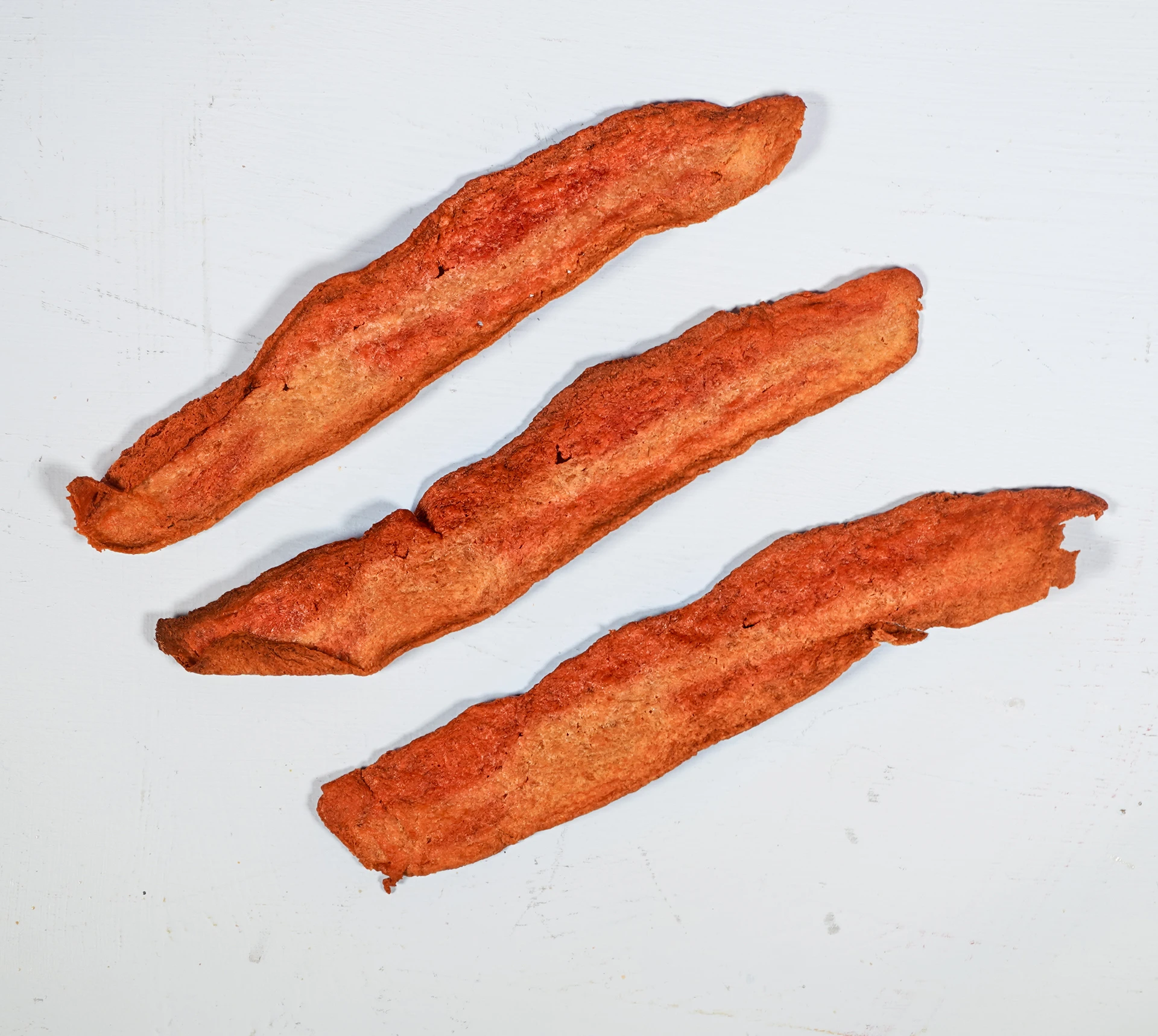Most fake meat products get protein from a small group of plants. In the case of the Beyond Burger or Nestle’s Awesome Burger, the main ingredient is pea protein; the Impossible Burger gets protein from soy and potatoes. Kellogg’s “Incogmeato” line is made with soy. But one new Bay Area startup relies on fungus instead—specifically, koji, the fungus used to make sake.
The startup, called Prime Roots, launched limited sales of its first product—a fungi-based bacon—online today. Bacon “is a very underserved meat alternative,” says Prime Roots cofounder Kimberly Le. “There’s a lot of ground beef out there. But there isn’t as much in the way of whole-muscle meat or a more formed product like bacon or chicken breast, which is something that koji does really well at replicating.”

In its Berkeley headquarters, the company grows the fungi in fermentation vats, in the same type of process as brewing beer or sake. When nutrients are added to koji “seeds,” they grow into long fibers within a few days. “The fibers are similar to chicken breast fibers in terms of their texture and what they look like,” Le says. The company strains out the fibers from the liquid they grow in and then adds plant-based fat and flavors to make the end product.
“We form it into essentially what is a pork belly,” she says. “It’s a block with natural fats and flavors. We actually smoke that block in a smoker, just as you would smoke a pork belly to make bacon. And then after it’s smoked and it has the flavor imparted into it, we’ll use a meat slicer to slice it just like you would bacon.”

Le and cofounder Joshua Nixon first met in a University of California at Berkeley class called Plant-Based Seafood Collider, where teams of students were tasked with developing new recipes for alternatives to fish—a food that’s harder to replicate than ground beef for a burger. Le decided to experiment with koji or Aspergillus oryzae, an ingredient that isn’t well known in the U.S. but is so commonly used in Japan to make sake and foods such as miso that “Fungus Day” is a national holiday. “I immediately thought about using fermentation to grow proteins instead of isolating proteins from plants, which is a really heavy processing method,” she says. “And so you can do it a lot more naturally.” The long fibers of the fungus help replicate the texture of meat, and koji also has a slight umami flavor, though it is mostly tasteless, she says.
The founders created a convincing salmon prototype (at the time, their startup was called Terramino Foods) and then developed a range of other meats. When they were ready to bring their first product to market, they polled potential customers on the type of food they most wanted as a new meat alternative. The overwhelming winner was bacon.
In a pan, the product sizzles and cooks like the real thing. “It actually shrinks like actual bacon in the pan—the strip starts pretty large and shrinks just like a real bacon strip does when it renders,” Le says. It can be cooked to the desired amount of crispiness. When Fast Company tasted a sample, though, we didn’t think it came that close to the mouthfeel or taste—probably in part because the company wanted to develop a healthier alternative, so it doesn’t have the delicious, melting fat you find in actual bacon. (It also has more protein, and the company says it’s trying to line up more with turkey bacon than pork bacon.) The company is taking orders for a limited offering of the product now and will continue developing it as it gets feedback from customers.
Recognize your brand’s excellence by applying to this year’s Brands That Matter Awards before the early-rate deadline, May 3.
